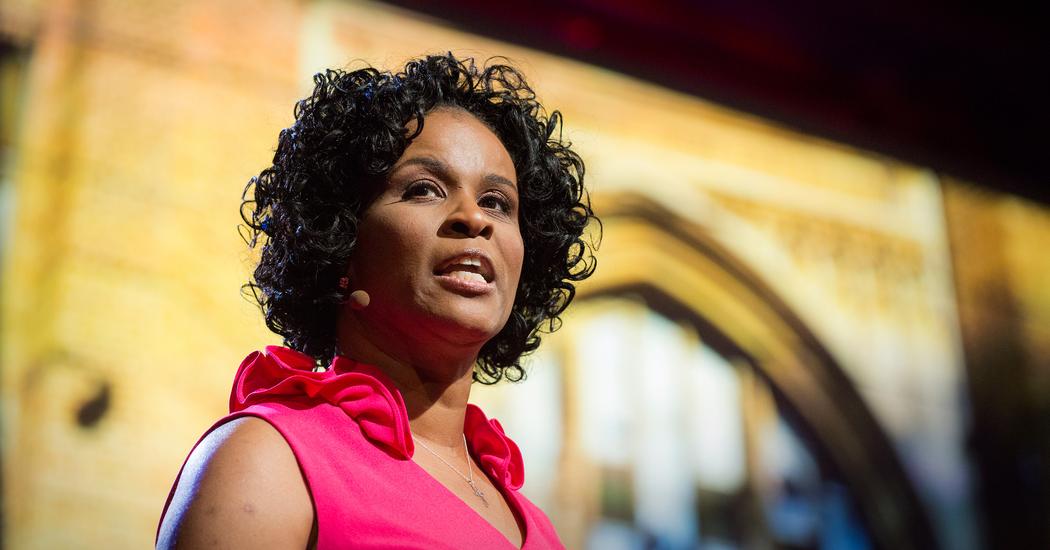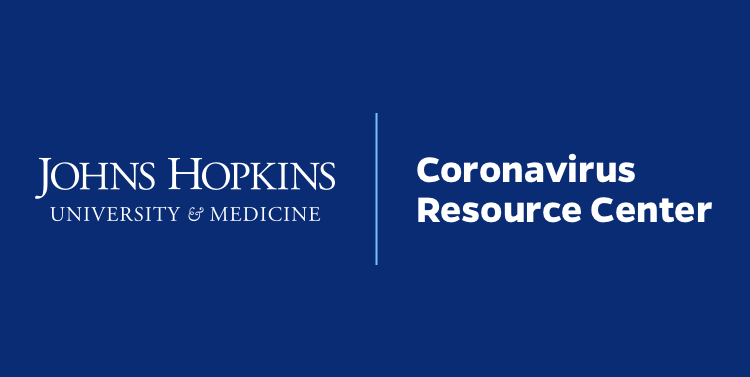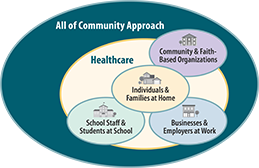
MSAA Matters
January Volume I
January 11th
Dear Colleagues,
Happy New Year!
Happy New Year! In light of last week's events it is difficult to say that ubiquitous phrase which may not ring sincere at times, or may feel like the promoting of toxic positivity, but it is critical in our profession that we remain optimistic and hopeful for our children, our students, our loved ones and our colleagues. But please understand at MSAA, we know you are on the front line and we are here to help you navigate these unprecedented times. Please reach out to anyone of us for support, venting or just to talk and we will find comfort in being with one another and provide the sustenance we need to keep on keeping on!
Member Blog Post
To that end let me call your attention to Henry J Turner, Principal of Newton North High School, and MSAA Board Member at Large, meaningful and powerful blog post that can provide you with some salient talking points when processing these recent horrific national events.
Commissioner's Meeting
On Thursday, January 7th at 10:00 AM the MSAA Finance Board met with Jeffrey Riley, Commissioner of Education from the Commonwealth. These meetings take place in order for MSAA to convey to the Commissioner the concerns, and opinions of our membership as through the questions you provide us with in advance of the meetings and the thoughts you share in our MSAA Gatherings. Please see the summary below provided by 1st Vice President, Julie Vincentsen.
Our meeting opened with President Duff sharing her experiences working on her platform project. Through this experience she has been able to interview students and administrators across the Commonwealth regarding leadership. President Duff is excited to share the final project with the Commissioner at the conclusion of the year.
The Commissioner then gave a general update on the state of public education in the Commonwealth. He stated, “People are worried about the current state of the virus...we believe it [the new strain] is here in America and in the Commonwealth.” He did talk about the hope of the vaccination process and shared, “We lobbied hard to get educators in Phase 1. We understand that others need to come first.” He did share that school nurses are now at the end of Phase 1 in the vaccine roll out.
Commissioner Riley spoke to the three models the Department asked districts to plan for - remote, hybrid and in person. Riley stated, “That has served us well as districts have had to move along the continuum.” He opined that “the data shows limited transmission in schools” and stated that “we want to keep reiterating the importance of mask wearing, physical distancing and not letting your guard down. We know it is hard.” He iterated that these mitigation measures significantly reduce the risk of transmission.
Recognizing that this is a local level decision, Riley again shared that “we strongly recommend people get back to school.” He also iterated that distancing at the elementary level “really should be three feet.” We are asking people to use the data at the local level to make this decision. He shared that people have talked to him that they regret not opening in the fall when the numbers were lower and that some now “feel they lost their window.” He stated, “People tried to make the best decisions they could. Let’s start to plan for what is next. We want to do it the safest way possible. We are the only state in the country who gave ten days for staff training...because we wanted to make sure we are safe.”
The conversation then turned to a discussion regarding the time on learning memo that was released prior to the December vacation. The Guidance on Amendments to Student Learning Time Regulations was published on December 18, 2020 and must be implemented by January 19, 2021. Click here for a link to that document. In summary, students in grades 1-12 participating in a remote model need to have 40 hours of synchronous learning in a ten school day window; while those in a hybrid learning model need to have 35 hours of synchronous learning in a ten school day window. These hours are can be an average across grades 1-12. In both models, students need to have live instruction each day. Districts were to apply for a waiver to these regulations that are legally binding; the due date was January 7.
When discussing the reasons for these changes four months into the school year, the Commissioner shared passionately the rationale which, at its core, has to do with the social emotional well-being of children across the Commonwealth. “The reason we didn’t do it in the fall is because we didn’t know the psychological damage of being at home, and not accessing school personnel regularly.” He summarized the statistics shared with him by doctors who told him that “if we don’t do something we could have a disastrous winter.” The Department feels that only 20% of districts are impacted by these changes.”We tried to be reasonable. None of us want to see a spike of suicides.”
Applauding the Commissioner’s passion for protecting the social emotional needs of children, Vice President Vincentsen shared that, in addition to a focus on SEL for students, a similar focus needs to be placed on the social emotional well-being of administrators, faculty and staff. Vice President Vincentsen stated that the Commissioner has always shared that he wants to hear from the field to give relief to the field. She cited the Time on Learning memo as well as the MCAS memo as two examples where further relief is needed. In support of MSAA’s position on MCAS voted unanimously by the MSAA board on October 22, 2020, Vice President Vincentsen again encouraged the Commissioner to give further relief to the field in this area. “We gave all the relief we could,” Riley responded.
He then did remind us that the laws first need to change at the federal level in order for MCAS to change more. A discussion regarding the possibility of administering MCAS in the fall when hopefully more students are back in person took place. “You aren’t the first to talk about the idea. We can’t do anything more until the laws change.” Commissioner Riley did share that he does not anticipate the federal legislation mandating testing changing as the new Secretary of Education, Connecticut Education Commissioner Miguel Cardona, did announce that he would be going forward with state testing in Connecticut.
First Past President Mark Wood shared his concern regarding the number of students who are failing at the high school level. Commissioner Riley shared that funding will be forthcoming in the spring for summer remediation programs.
A question was posed about the possibility of a state-wide shut down of schools. He did not anticipate the Governor making this decision. He stated, “It’s not likely anytime soon that he would make that call...Anything is possible, but I don’t see it happening.”
He closed by sharing that the stimulus funds are coming. The Department feels they can turn these funds around quickly and get them to Districts within 30 to 45 days.
Respectfully Submitted,
Julie Vincentsen
First Vice President
Principal, Hanscom Primary School, Lincoln Public School
Questions Submitted from the MSAA Membership
Funding for SEL:
If we are now recognizing schools as a vital part of social-emotional well being what are the plans to fund them as such in the future?
Time on Learning:
Please explain the rationale behind not setting Time on Learning expectations at the onset of the school year but then doing so 4 months into the school year?
Is there a way to share hybrid models of districts (of varying sizes) that are meeting these hours? I am particularly interested in how smaller districts are successfully implementing a hybrid model that meets these demands.
We have been planning and implementing a hybrid model for our district during this school year. Our staff has been training and building virtual lessons at rapid speed throughout this year. It isn't perfect but it is very good considering we are in a pandemic. We were given no guidance from DESE as to how we were to develop our plans for this year until recently. We have been told an arbitrary number of hours that our students need to have live instruction. We have had periods where our schools have had to go fully remote during the hybrid model and we learned a great deal during that time. We learned that more than 3 hours of face to face learning on a given day was very challenging for most of our elementary population. We learned that it was far more beneficial for students, their families and teachers to have a balance of live learning, video options and asynchronous learning. We feel we are being asked to adjust our Hybrid model to fit into an arbitrary number of live learning hours which will have a negative impact on our students learning. The teachers are working above and beyond to produce synchronous and asynchronous material that adheres to the state standards. Adding additional hours for students to zoom into a classroom has minimal positive impact for students and I would ask if this mandate could be reconsidered.
While our goal is to get students to return to school full-time I would respectfully ask that due to current and predicted COVID metrics that we are allowed to continue with our Hybrid model through the end of this year. The constant change of platforms throughout the year is only further challenging the social emotional well-being of our students, families and teachers during this crisis.
Shouldn't lunch and recess count toward our time on learning if that is the primary opportunity for students to engage in socializing in the hybrid model? Social emotional wellness is a primary reason students are feeling positive about coming to school – correct?
MCAS:
Are we going to have MCAS at the elementary level this spring? We are having a difficult time filling vacancies because there aren't enough candidates due to COVID. We had to close our school for two weeks because there were close contacts who had to quarantine; we can't find substitutes who are willing to come into school for these absences, this leaves us short staffed. It is a constant juggling act getting our school to remain open due to staffing shortages. I am concerned that when it comes to assessing students using standardized testing that we will not have the staff to support all students’ needs. Additionally, we will also have to double our testing time due to having two cohorts of students which will require even more time away from student learning.
Please consider the stress that students, families and staff have been under throughout this year and what is best for our students when administering standardized tests during a pandemic. There is very little informative data that will be gained from a standardized test during this time. We will be adding undue stressors on to students and families lives with an outcome that is predictable. Hopefully there will be some normalcy at the beginning of the year, when we can assess student progress and progress from there.
How are we expected to administer MCAS when 50% of our students are remote and the other group hybrid? Furthermore, how is this a valid test if students are taking it at home and not in a secure testing environment (something DESE literally sends people out to schools to check for)? And lastly, why would we be burdening our students and teachers with the stress of state testing in the middle of a global pandemic?
If we are already short 10 instructional days, is the data generated worth the additional instructional time that will be lost due to MCAS administration?
Remote State-Wide:
I am wondering if it is possible for the Commissioner to consider making a decision at the state level for all Public Schools to shift to a remote model for a period of time in January to reduce the effects of holiday travel and gatherings. Our nursing staff is overwhelmed by managing the volume of situations and making these kinds of decisions at a local level is incredibly challenging.
Upcoming Events/Initiatives at MSAA
- DEI Youth Summit, January 19-21-2021
- MSAA Edcamp Saturday, February 27th 8:15 AM Click here for more information
Reminders
The MIAA Sportsmanship Essay/ Multimedia Contest deadline has been extended to February 5, 2021. Information can be found below.
CONTEST GUIDELINES:
PARTICIPANTS Contest is open to students in grades 9-12 at MIAA Member Schools ESSAY ENTRIES Must be typed, double spaced, and contain no more than 500 words MULTIMEDIA ENTRIES Must be a video that is no longer than 3 minutes
PRIZES:
First Place ($400) and Runner-Up ($200) prizes will be presented in two categories (essay and multimedia) Contest winners will present their entries as honored guests during the 27th Annual MIAA Sportsmanship Summit. First Place and Runner-Up essay entries will be published in a compilation entitled “Sportsmanship: A Game Plan for Life, Volume XX First Place and Runner-Up multimedia entries will be available on the MIAA website
CONTEST DEADLINE AND SUBMISSION INSTRUCTIONS:
All entries must be received by 12:00 pm on Friday, February 5, 2021 All entries, essay and multimedia, must be emailed to educationalathletics@miaa.net See directly below for the pdf flyer link.
Closing Message from Bill Gaine
On behalf of MSAA and Executive Director, Bill Gaine: Stay safe, stay strong, and take time for yourself.
Warm Regards,
Beth
Beth Wittcoff
MSAA Assistant Executive Director
MSAA Matters Newsletter
Middle Level and Elementary Committee Liaison
Ring Central Gatherings
NO NEW ARTICLES/VIDEOS THIS EDITION
MIAA 20th Annual Sportsmanship Essay/Multimedia Contest
MSAA Position Papers
RING CENTRAL GATHERINGS
See member email for links to these gatherings!
There will not be a meeting on the Monday holidays.
1st Monday of the Month High School Administrator Gatherings 3 PM
January 4
February 1
March 1
April 5
May 3
June 7
2nd Monday of the Month Assistant Principal Gatherings 3 PM
December 14
January 11
February 8
March 8
April 12
May 10
June 14
3rd Monday of the Month Middle Level Administrators 3 PM
December 21
January 18 Holiday
February 15 Holiday
March 15
April 19 Holiday
May 17
June 21
4th Monday of the Month All Level Administrators 4 PM
December 28 Winter Break
January 25
February 22
March 22
April 26
May 24
June 28
1st Tuesday of the Month PK-8 Administrators 4 PM
January 5
February 2
March 2
April 6
May 4
June 1
MSAA PROFESSIONAL DEVELOPMENT
SYNCHRONOUS PRESENTERS:
Various
Urban Schools Summit: Best Practices
January 8
SYNCHRONOUS PRESENTERS: Various
MIAA/MSAA Diversity, Equity and Inclusion Summit
SAVE THE DATE
January 19, 20, 21
SYNCHRONOUS PRESENTER: Dr. Nicole L’Etoile, TEACHERS21
Two parts - January 21 and January 25
SYNCHRONOUS PRESENTER: Kaitlyn Torossion, Ribas Associates and Publications
Sheltered English Immersion Course for Administrators
This course is approved by and fulfills Massachusetts DESE and U.S. Department of Justice requirements of the education of English Language Learners/Five synchronous sessions with an additional component
5 Parts – January 27, February 10 & 24, March 10 & 17 (Repeat offering of Fall workshop)
SYNCHRONOUS PRESENTER: Colleen Shea, Esq., Stoneman, Chandler & Miller, LLP
Legal Aspects of Student Confidentiality
January 28
SYNCHRONOUS PRESENTER: Karen Dodd Antonelli, Ribas Associates and Publications
Sheltered English Immersion (SEI) Course
for All Classroom Teachers and School Clinical Staff
Feb 1, 8, & 22; March 1, 8, 15, 22 & 29; April 5, 12, & 26 and May 3
SYNCHRONOUS PRESENTER: Karen Dodd Antonelli, Ribas Associates and Publications
Sheltered English Immersion (SEI) Course
for Vocational High School Teachers and School Clinical Staff
Feb 3, 10, & 24; March 3, 10, 17, 24 & 31; April 7, 14, & 28 and May 5
SYNCHRONOUS PRESENTER: Dr. Nicole L’Etoile, TEACHERS21
Rethinking Summative Assessments in a Virtual/Hybrid Classroom
Two parts – February 23 and February 25
ASYNCHRONOUS
ASYNCHRONOUS PRESENTER: Jane Hardin, Ribas Associates & Publications
Succeeding with Students with Special Needs
Approved by DESE for Use Toward the 15 PDPs in Special Education for License Renewal for Teachers, School Clinicians, and Administrators – 5 Modules; take individual modules or all 5
Registration now through May 15; learning portals open January 22 and close June 30
ASYNCHRONOUS PRESENTER: Dr. Cindy Crimmin, Ribas Associates & Publications
Succeeding with English Language Learners
Approved by DESE for Use Toward the 15 PDPs in Special Education for License Renewal for Teachers, School Clinicians, and Administrators – 5 Modules; take individual modules or all 5
Registration now through May 15; learning portals open January 22 and close June 30
ASYNCHRONOUS PRESENTER: Elayne Gumlaw, Ribas Associates & Publications
Teaching Face-to-Face, Hybrid, and Remote
Registration now through May 15; learning portals open January 22 and close June 30
ASYNCHRONOUS PRESENTER: Dr. Roseli Weiss, Ribas Associates & Publications
Low Socio-economic Status (SES) Students and Families:
Strategies for Closing Achievement Gaps and Reducing Special Education Referrals
Registration now through May 15; learning portals open January 22 and close June 30
ASYNCHRONOUS PRESENTER: Karen Dodd Antonelli, M.Ed., Ribas Associates and Publications
Understanding and Addressing Implicit Unconscious Bias
Registration now through May 15; learning portals open January 22 and close June 30
ASYNCHRONOUS PRESENTER: Jane Hardin, Ribas Associates and Publications
The Impact of Trauma on Teaching, Learning and Living
Registration now through May 15; learning portals open January 22 and close June 30
ASYNCHRONOUS PRESENTER: Cynthia Marchand and Carol Gregory, Ribas Associates & Publications
Classroom Management (with a component on remote teaching)
Registration now through May 15; learning portals open January 22 and close June 30
For more information please contact: pd@msaa.net
























